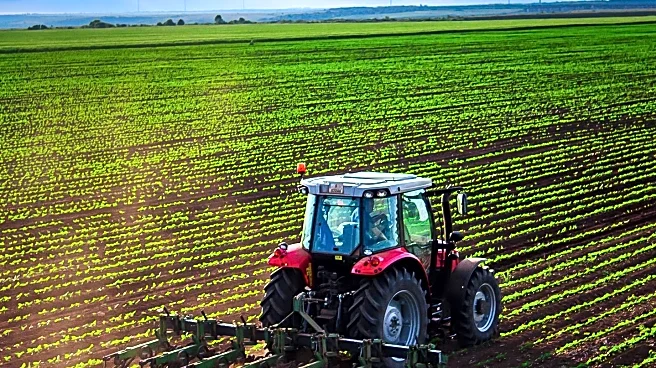What is the story about?
What's Happening?
Agriculture and food systems are responsible for approximately one-third of global greenhouse gas emissions, according to the UN Food and Agriculture Organization. In 2022, emissions from agrifood systems reached 16.2 billion tonnes of CO2 equivalent, marking a 10% increase since 2000. These emissions stem from various sources, including livestock, crop production, and supply chains. Addressing this footprint is crucial to prevent surpassing the 2°C global warming threshold, even if fossil fuel emissions were eliminated.
Why It's Important?
The sustainability of agriculture and food systems is vital for meeting global climate targets. Integrating renewable energy, regenerative agriculture, and advanced technology can significantly reduce emissions. These strategies not only mitigate environmental impact but also enhance food security and resilience against climate change. The shift towards sustainable practices in agriculture is essential for aligning with climate goals and ensuring a stable future for food production and distribution.
What's Next?
Efforts to decarbonize agriculture will likely focus on integrating renewable energy solutions and promoting regenerative farming practices. Consumer behavior and technological advancements will play a key role in driving these changes. Policymakers and industry leaders are expected to collaborate on developing robust strategies for climate adaptation and sustainable land management. The transition to sustainable agriculture will require coordinated efforts across sectors to achieve meaningful reductions in emissions.
Beyond the Headlines
The push for sustainable agriculture involves ethical considerations, such as the impact on small-scale farmers and the need for equitable access to resources. The cultural shift towards environmentally conscious consumer behavior can drive demand for sustainable products, influencing market trends. Long-term changes in agricultural practices may also lead to innovations in food production and supply chain management, fostering a more resilient and sustainable global food system.
















